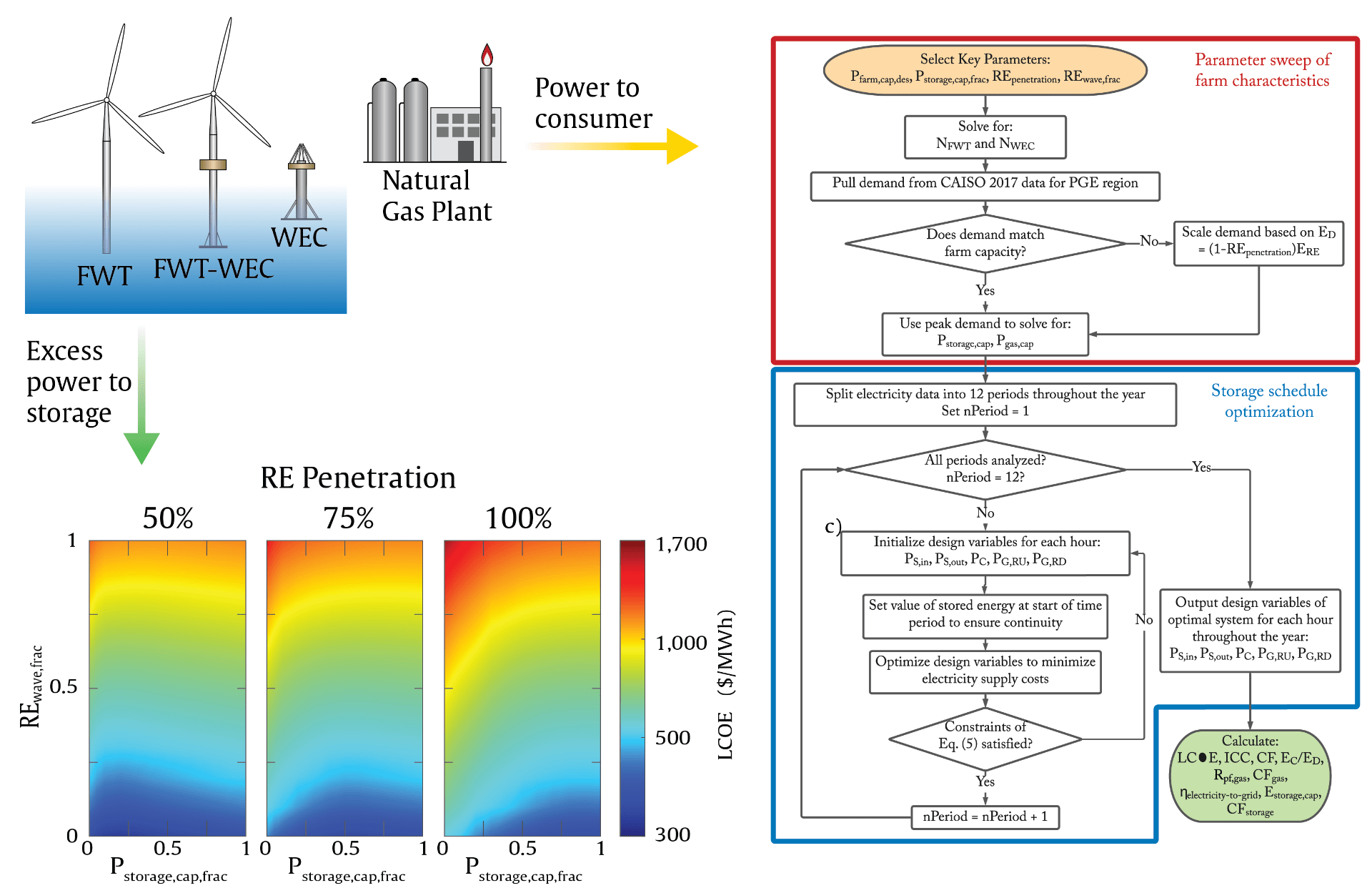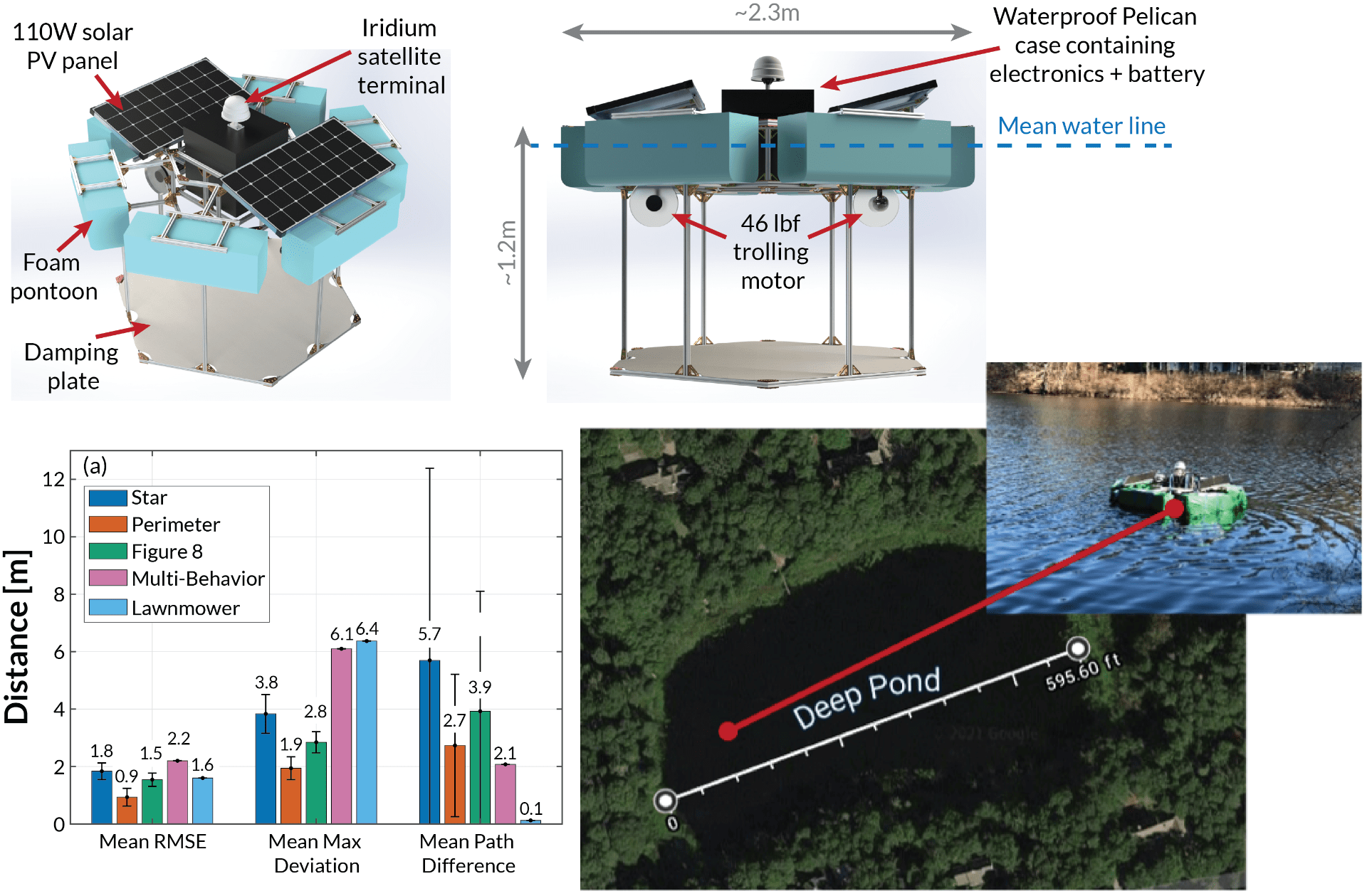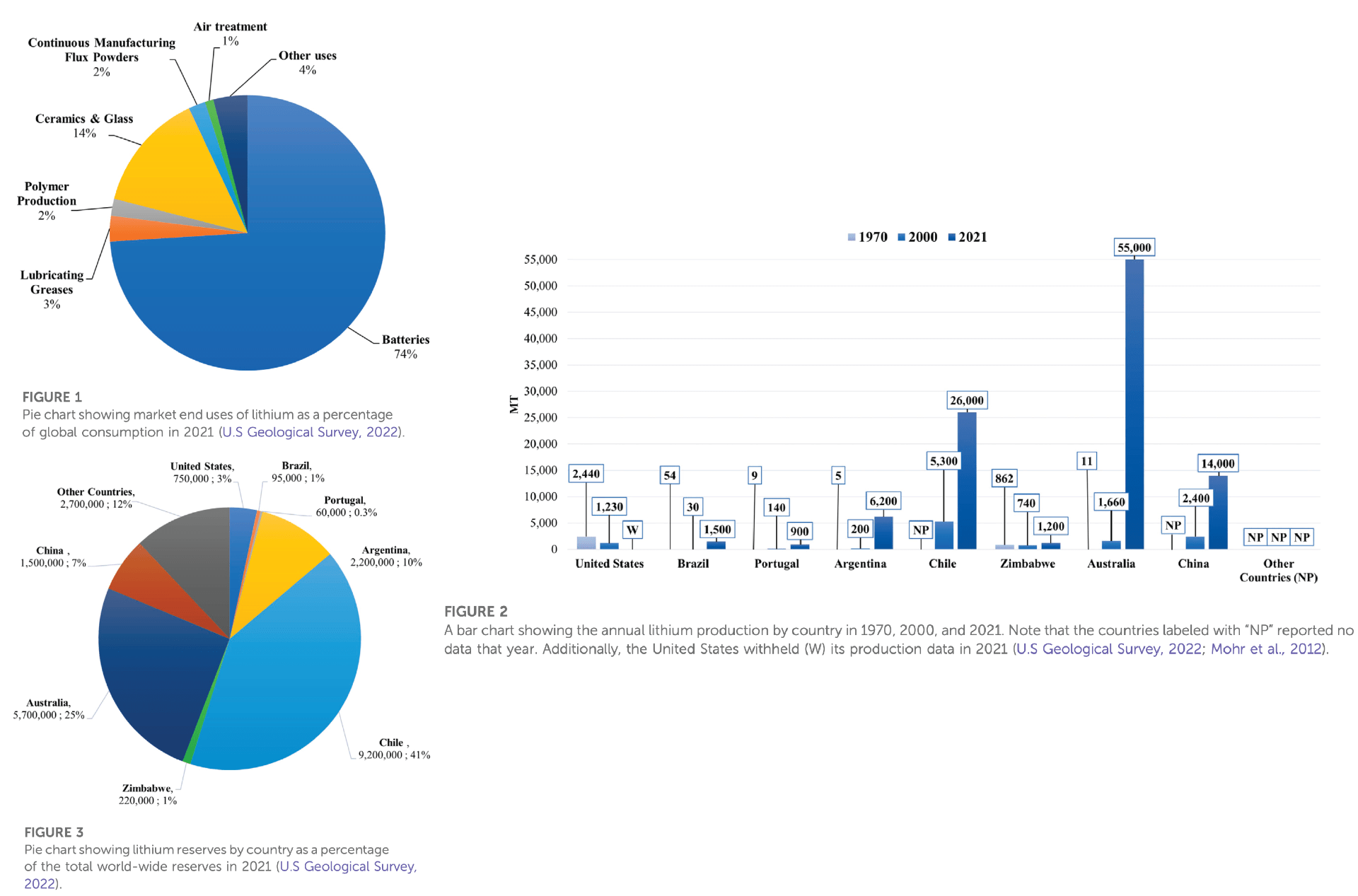The Symbiotic Engineering and Analysis Lab develops interdisciplinary symbiotic solutions to advance sustainable offshore technologies vital to the growth of the Blue Economy* and the mitigation of climate change. The SEA Lab is led by Professor Maha Haji in the Sibley School of Mechanical and Aerospace Engineering at Cornell University.
The Symbiotic Engineering and Analysis Lab develops interdisciplinary symbiotic solutions to advance sustainable offshore technologies vital to the growth of the Blue Economy* and the mitigation of climate change. The SEA Lab is led by Professor Maha Haji in the Sibley School of Mechanical and Aerospace Engineering at Cornell University.
Research
Systems Engineering
Integrating systems to better provide mutually beneficial relationships with the oceans.
Mineral Extraction
Sustainably harvesting minerals from seawater, including uranium, cobalt, and lithium.
Offshore Energy
Harnessing and storing the energy at sea to meet the energy needs of tomorrow.
Aquaculture
Reliably and cost-effectively expanding aquaculture farms further offshore.
Research
Systems Engineering
Integrating systems to better provide mutually beneficial relationships with the oceans.
Mineral Extraction
Sustainably harvesting minerals from seawater, including uranium, cobalt, and lithium.
Offshore Energy
Harnessing and storing the energy at sea to meet the energy needs of tomorrow.
Aquaculture
Reliably and cost-effectively expanding aquaculture farms further offshore.
News
Wave energy converter prototypes featured in Cornell Chronicle
Undergraduates Aisha Brundan and Kavya Mittha and graduate students Nate DeGoede and Olivia Vitale are featured in the Cornell Chronicle for their work with wave energy converter (WEC) prototypes. The prototypes include a heaving point-absorber WEC and an oscillating surge WEC. The article highlights the tank testing of the newest SEA Lab prototype. Read more here.
Feb 29, 2024
Becca McCabe featured in Cornell Chronicle article about sensory rooms for neurodivergent students
Becca is the president of the Student Neurodiversity Alliance at Cornell and advocates for the Learning Strategies Center’s new sensory room. A sensory room is a space for all students to escape sensory overload. Check out the article here.
Dec 11, 2023
Integrated Pumped Hydro Reverse Osmosis System Featured in Cornell Chronicle
Graduate student Matthew Haefner published in Applied Energy on the Integrated Pumped Hydro Reverse Osmosis System (IPHROS). IPHROS is a system where fresh water production and energy storage are symbiotically coupled. The work was highlighted in the Cornell Chronicle, linked here.
Dec 6, 2023
SEA Lab at UMERC 2023 Conference at the University of New Hampshire
SEA Lab members presented their research at the second annual University Marine Energy Research Community (UMERC) conference in Durham, New Hampshire, hosted by the Atlantic Marine Energy Center and the University of New Hampshire. Undergraduate student Gabriel Ewig presented work titled “Marine Spatial Planning for Siting Wave-Powered Aquaculture Farms,” graduate student Olivia Vitale presented work titled “Multi-objective multidisciplinary optimization of wave energy converter array configurations and controls,” and postdoctoral researcher Dr. Arezoo Hasankhani presented a poster titled “Wave-Powered Aquaculture Farm: Sustainable Source of Food and Power.”
Oct 4-6, 2023
SEA Lab members present research at the 2023 C3E Symposium
SEA Lab members Leah Buccino, Annie Stewart, and Olivia Vitale presented their work at the 2023 Clean Energy, Education, and Empowerment (C3E) Initiative Symposium in Boston, MA. Undergraduate student Leah presented a poster titled “Power Consumption in an Offshore Aquaculture Farm,” undergraduate student Annie presented a poster titled “Development of a Wave-Powered Integrated Multi-Trophic Aquaculture Farm,” and graduate student Olivia presented a poster titled “Aquaculture, Wave Energy Converters, and Offshore Wind Turbines: A Co-Location Case Study.”
Sept 27-18, 2023
News
Wave energy converter prototypes featured in Cornell Chronicle
Undergraduates Aisha Brundan and Kavya Mittha and graduate students Nate DeGoede and Olivia Vitale are featured in the Cornell Chronicle for their work with wave energy converter (WEC) prototypes. The prototypes include a heaving point-absorber WEC and an oscillating surge WEC. The article highlights the tank testing of the newest SEA Lab prototype. Read more here.
Feb 29, 2024
Becca McCabe featured in Cornell Chronicle article about sensory rooms for neurodivergent students
Becca is the president of the Student Neurodiversity Alliance at Cornell and advocates for the Learning Strategies Center’s new sensory room. A sensory room is a space for all students to escape sensory overload. Check out the article here.
Dec 11, 2023
Integrated Pumped Hydro Reverse Osmosis System Featured in Cornell Chronicle
Graduate student Matthew Haefner published in Applied Energy on the Integrated Pumped Hydro Reverse Osmosis System (IPHROS). IPHROS is a system where fresh water production and energy storage are symbiotically coupled. The work was highlighted in the Cornell Chronicle, linked here.
Dec 6, 2023
SEA Lab at UMERC 2023 Conference at the University of New Hampshire
SEA Lab members presented their research at the second annual University Marine Energy Research Community (UMERC) conference in Durham, New Hampshire, hosted by the Atlantic Marine Energy Center and the University of New Hampshire. Undergraduate student Gabriel Ewig presented work titled “Marine Spatial Planning for Siting Wave-Powered Aquaculture Farms,” graduate student Olivia Vitale presented work titled “Multi-objective multidisciplinary optimization of wave energy converter array configurations and controls,” and postdoctoral researcher Dr. Arezoo Hasankhani presented a poster titled “Wave-Powered Aquaculture Farm: Sustainable Source of Food and Power.”
Oct 4-6, 2023
SEA Lab members present research at the 2023 C3E Symposium
SEA Lab members Leah Buccino, Annie Stewart, and Olivia Vitale presented their work at the 2023 Clean Energy, Education, and Empowerment (C3E) Initiative Symposium in Boston, MA. Undergraduate student Leah presented a poster titled “Power Consumption in an Offshore Aquaculture Farm,” undergraduate student Annie presented a poster titled “Development of a Wave-Powered Integrated Multi-Trophic Aquaculture Farm,” and graduate student Olivia presented a poster titled “Aquaculture, Wave Energy Converters, and Offshore Wind Turbines: A Co-Location Case Study.”
Sept 27-18, 2023
Selected Publications
Integrated Pumped Hydro Reverse Osmosis System optimization featuring surrogate model development in Reverse Osmosis modeling
M. W. Haefner and M. N. Haji
Applied Energy, 352, 121812, 2023
The power balancing benefits of wave energy converters in offshore wind-wave farms with energy storage
J. M. Kluger, M. N. Haji, and A. H. Slocum
Applied Energy, 331, 120389, 2023.
Autonomous control of a prototype solar-powered offshore autonomous underwater vehicle servicing platform via a low-cost embedded architecture
E. Rolland, M. N. Haji, and O. L. de Weck
Journal of Field Robotics, 1-20, 2023.
A review of technologies for direct lithium extraction from low Li+ concentration aqueous solutions
O. Murphy and M. N. Haji
Frontiers in Chemical Engineering, 4, 2022.
Selected Publications
Integrated Pumped Hydro Reverse Osmosis System optimization featuring surrogate model development in Reverse Osmosis modeling
M. W. Haefner and M. N. Haji
Applied Energy, 352, 121812, 2023
The power balancing benefits of wave energy converters in offshore wind-wave farms with energy storage
J. M. Kluger, M. N. Haji, and A. H. Slocum
Applied Energy, 331, 120389, 2023.
Autonomous control of a prototype solar-powered offshore autonomous underwater vehicle servicing platform via a low-cost embedded architecture
E. Rolland, M. N. Haji, and O. L. de Weck
Journal of Field Robotics, 1-20, 2023.
A review of technologies for direct lithium extraction from low Li+ concentration aqueous solutions
O. Murphy and M. N. Haji
Frontiers in Chemical Engineering, 4, 2022.
*The Blue Economy is defined by the United Nations as an ocean economy that aims at “the improvement of human well-being and social equity, while significantly reducing environmental risks and ecological scarcities” (UN, 2014, p.2)
*The Blue Economy is defined by the United Nations as an ocean economy that aims at “the improvement of human well-being and social equity, while significantly reducing environmental risks and ecological scarcities” (UN, 2014, p.2)



